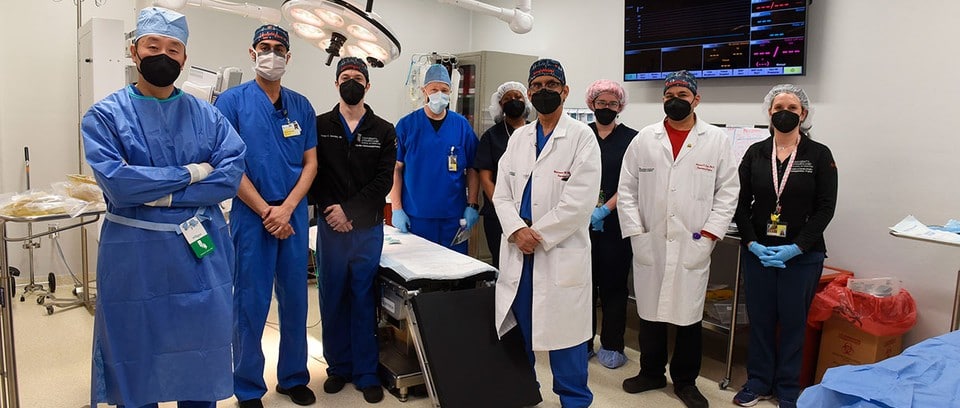The University of Maryland School of Medicine (UMSOM) and the University of Maryland Medical Center (UMMC) announced on the 10th of January, the first successful transplant of a genetically modified pig’s heart into a human patient. It is the first successful surgery attempt made with the help of a donor in the form of an animal on a human. The heart transplant patient, a 57-year-old, David Bennett, a Maryland man, is doing well though a clear prognosis has not been concluded so far.

David Bennett had been bedridden for several months. He was on a heart-lung bypass machine. The doctors at the University of Maryland School of Medicine decided to operate on him in this do-or-die situation and came up with a conclusion of transplanting a pig heart. It is the first-ever kind of surgery involving an animal-human exchange of organs.
David Bennett had a great zeal for life and wished to survive however the conventional routes to organ transplant seemed to be closed in his cases. He was found to be ineligible for a conventional heart transplant at UMMC. Many other leading transplant centres also reviewed his medical records and also denied the same. Hence, the doctors at UMMC decided to opt for a heart transplant with the pig heart.

These days, animal transplants are used in humans in severe cases. For example in case of severe burns, a pig’s skin is grafted as it is found to match the human skin. Pigs are used conventionally in Animal organ transplants, or xenotransplants, as their litters are high, and they are commonly raised for food and livestock.
Xenotransplants are extremely rare and can have significant risks to patients as well as bioethical concerns because the human immune system has cell-mediated immunity that leads to the rejection of organs and grafts.
To reduce the same in this case, there were several changes made in the pig’s heart to match up the human heart and prevent the complexities and organ rejection by the body.
A total of 10 gene edits were done in the pig heart,” explained Mr Mohiuddin who co-founded the UMMC cardiac xenotransplantation program “Four genes were knocked out. The three of them were responsible for producing antibodies that cause rejection, and then one gene was knocked out to control the growth of the pig and its organs that could lead to complexities in the growth of tissues in the human body. Six human genes are responsible for human acceptance in the genome. These have been possible with the help of biotechnology.

Revivicor, a regenerative medicine company based in Blacksburg, provided the genetically modified pig to the xenotransplantation laboratory at UMSOM for the surgery. The pig’s heart was removed and placed in the XVIVO Heart Box perfusion device, which kept the heart preserved until surgery on the day of the transplantation. Usually, the FDA doesn’t approve of this kind of transplantation, but the permission was granted under emergency usage.
The physician used conventional anti-rejection drugs, along with a newly designed anti-rejection drug which has been designed to suppress the immune system and prevent the body from rejecting the foreign organ. The new drug used in the surgery is an experimental medicine made by Kiniksa Pharmaceuticals.
Bennett has been under the special care of the doctors and if this porcine heart transplant is successful, it would pave the way for a brighter future in the organ transplant area.
Also Checkout: Is a prolonged COVID a possibility with mild Omicron symptoms? Explained












